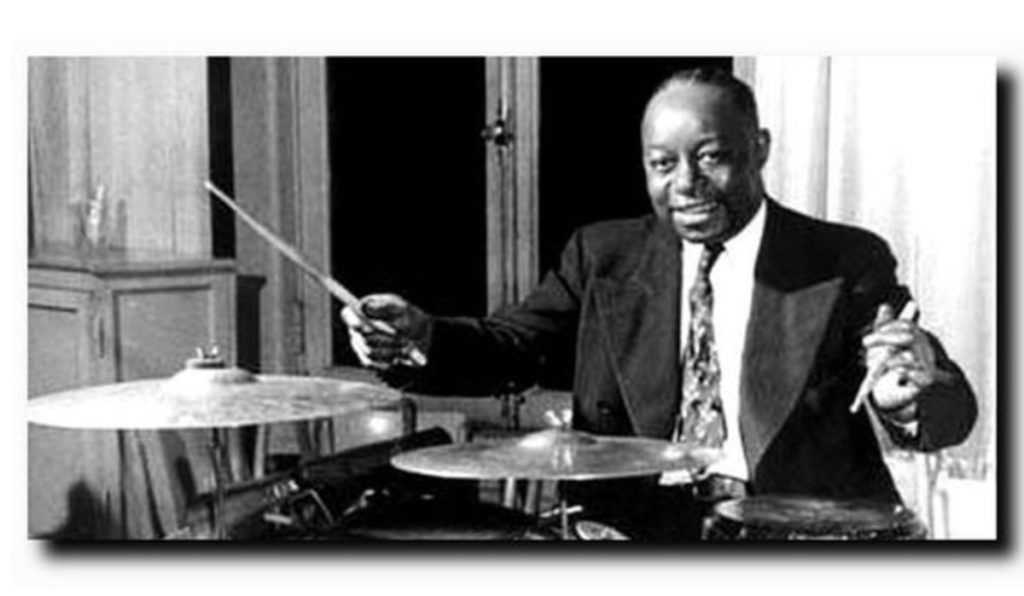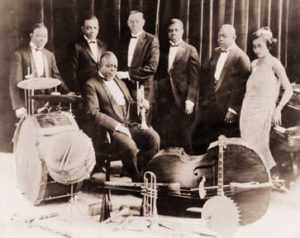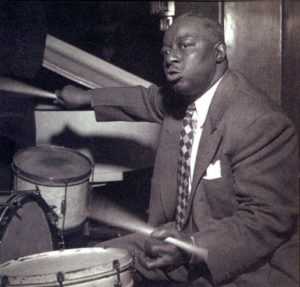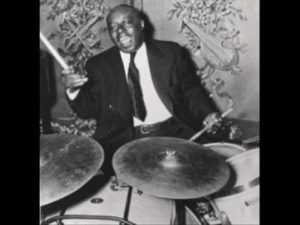Artists
Baby Dodds: The Pioneer of Jazz Drumming

Warren “Baby” Dodds was a trailblazing figure in the world of jazz drumming, whose revolutionary contributions helped shape the sound and rhythm of early jazz music. Born in New Orleans in 1898, Baby Dodds was a master of improvisation and one of the first drummers to infuse a sense of swing and syncopation into the burgeoning jazz scene. His innovative approach to the drums, particularly his use of the bass drum and the buzz rolls on the snare, laid the groundwork for modern jazz percussion. As a member of notable ensembles such as King Oliver’s Creole Jazz Band, Louis Armstrong and his Hot Seven, and the Red Hot Peppers, Dodds helped define the role of the drummer as a key voice in the jazz ensemble, influencing generations of drummers to follow.
Childhood and Early Life
Warren “Baby” Dodds was born on December 24, 1898, in New Orleans, Louisiana, into a world steeped in music. His older brother, Johnny Dodds, was a renowned clarinetist, and the musical atmosphere of New Orleans provided fertile ground for Baby Dodds to cultivate his rhythmic talents. Growing up in the Crescent City, the heartbeat of jazz, Baby was surrounded by the vibrant sounds of brass bands, ragtime, and early jazz – a confluence of African, Caribbean, and European musical traditions.
Dodds’ early interest in drumming was nurtured by this environment. By his teenage years, he started playing drums professionally in street parades around New Orleans and then got a job playing with American Stars, a Willie Hightower’s band. His natural ability, combined with the influence of the city’s cultural melting pot, would help him become one of the earliest and most significant pioneers of jazz drumming.
Musical Influences
The rhythms of African-American culture and traditional New Orleans brass bands deeply influenced Baby Dodds. The improvisational nature of jazz and the syncopated rhythms that arose from the blend of ragtime, blues, and African drumming traditions helped shape Dodds’ unique style. He learned from and was inspired by the street parades, military marches, and clubs that brought jazz to life in New Orleans.
Dodds’ early influences include Louis Cottrell Sr., Dave Perkins, Tubby Hall, and other older drummers who played in brass bands, as well as the early jazz and blues musicians with whom he regularly performed. He was among the first drummers to record improvising while performing. His older brother, Johnny Dodds, was a key figure in his life, and the two brothers often performed together, forming a musical bond that lasted throughout their careers.
Career
Baby Dodds’ professional career began in New Orleans, where he performed with local brass bands and in various dance halls. In 1918, he joined Fate Marable’s riverboat band, performing on the Mississippi River steamboats. This was a crucial period in Dodds’ development as a drummer, as he played with a range of musicians and absorbed different regional styles. It was during this time that he honed his ability to adapt to different musical settings, making him a versatile and sought-after drummer. This is also where he first met Louis Armstrong.

In 1921, due to disagreements in musical styles, Dodds and Armstrong left Fate Marable’s band. Soon, Dodds joined King Oliver’s Creole Jazz Band with his brother Johnny on clarinet. They moved to California to work with Oliver and played together for about fifteen months. In 1922, they followed Oliver to Chicago and played for several years. This is also where Louis Armstrong joined King Oliver. Chicago became a hub for jazz, and Dodds quickly became one of the most in-demand drummers in the city. He played with many leading jazz musicians of the time, including Louis Armstrong, and Jelly Roll Morton, helping to shape the development of early jazz.
Dodds is best known for his work with the King Oliver Creole Jazz Band and Louis Armstrong’s Hot Five and Hot Seven bands. He was one of the first drummers to be recorded in the studio, and his work on these early recordings helped establish the role of the drum set in jazz music.
Drumming Style

Dodds had an innate ability to adapt to the needs of different musical settings, whether it was a lively dancehall or a more intimate jazz club. His drumming was both propulsive and subtle, providing the foundation for the ensemble while also adding embellishments and accents that enhanced the music. He often used brushes instead of drumsticks, particularly in quieter passages, giving his playing a softer, more nuanced sound. While with Jelly Roll Morton, Dodds was required to play wire brushes. Later, he became one of the first jazz drummers to be recorded with wire brushes as an alternative to sticks. Dodds was also an early user of cymbals to create dynamic shifts in volume and mood. The way he plays press rolls has ultimately evolved into the standard jazz ride-cymbal pattern.
What set Dodds apart was his ability to seamlessly transition between different rhythmic patterns and time signatures, often within the same piece of music. This made him an ideal accompanist for improvising musicians, as he could respond to their playing in real time, creating a conversation between the drums and the soloist.
Death and Legacy
Baby Dodds continued to perform and record throughout his life, even as his health declined in his later years. He passed away on February 14, 1959, in Chicago, Illinois, at the age of 60. His death marked the end of an era, but his influence on jazz drumming lived on.
Dodds is often remembered as one of the first great jazz drummers, and his pioneering work helped define the role of the drummer in jazz. He was inducted into the DownBeat Jazz Hall of Fame in 2010, and his recordings continue to be studied and admired by drummers and jazz enthusiasts alike. Dodds’ drumming laid the foundation for future generations of jazz drummers, including Gene Krupa and Max Roach, who expanded on his techniques.
Baby Dodds’ legacy is that of a true innovator. His ability to blend rhythm and melody, his pioneering use of the drums, and his contributions to some of the most important recordings in jazz history cemented his place as one of the greatest drummers of all time. His influence can still be heard in the playing of jazz drummers today, and his work remains a cornerstone of jazz drumming.
Let’s listen to the Legend, Baby Dodds
Billy Goat Stomp with Jelly Roll Morton
At The Jazz Band Ball
Tom-tom solo with Foot Muffle
Drum Improvisations by Baby Dodds
Spooky Drums No. 1
“I always worked to improve my drumming, and I never drummed just for the money”.
“I loved it and I felt that drums have as much music in them as any other instrument. A drummer provides a very important foundation for the rest of the musicians. You can’t get into a locked house without a key, and the drum is the key to the band.”
-Warren “Baby” Dodds


